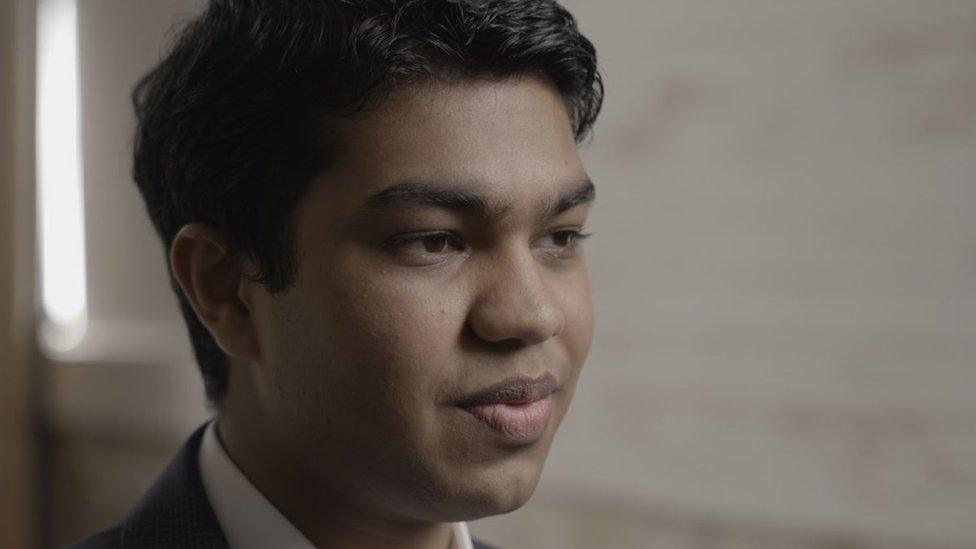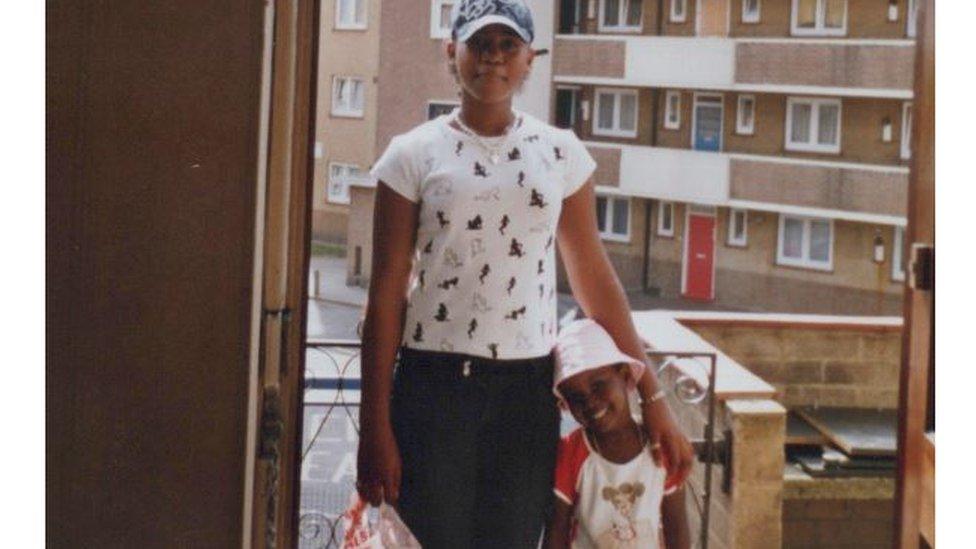'I've always thought I was British'
- Published
Thousands of young people who were born in the UK or have lived here since they were young say they feel like second-class citizens because of their immigration status.
Many of them are in the UK legally but with a temporary immigration status, which can limit their rights.
Even children born in the UK do not automatically become citizens. It depends on their parents' citizenship status. And many children who have grown up here face a lengthy and expensive journey to become citizens.
BBC Panorama has been speaking to young people who say their hopes and dreams have been crushed because of their situation. Some didn't even realise there was a problem until they became adults.


Maheraj Ahmed
Maheraj Ahmed, 18
I'm the child of first-generation immigrants. I want to study medicine and hopefully one day become a doctor and help people and give back to the community through medicine. But I felt like my dreams had been crushed.
I came to this country when I was five years old. My dad was a nurse in Bangladesh and then came to the UK to continue his education.
While he was there, there was a change in government in Bangladesh, and my dad couldn't return and so he brought us over here to join him.
I realised I wasn't a British citizen when I was in year four at school.
We received letters from the Home Office and my parents don't speak very much English so I'd read through them and realised we were being told that, by the end of December 2012, we would have to leave the country or appeal the decision.
I was told I won't be able to go onto university this year, and I might not be able to go in the future. That to me was just devastating.
Right now I'm on a two and a half year visa system, so that gets extended every two and a half years and that's only come into effect.
I think it was 2019 when we first got granted that. So that's going to be a rolling system until it's been 10 years of doing that.
Being a citizen is a privilege and we have to respect that privilege. But I feel like it's a privilege that people in my situation should be allowed to have.

The 10-year route
For people like Maheraj who want to stay in the UK, their only option is to start a 10-year route to permanent immigration status.
Maheraj and his family are now on this route.
They get a temporary visa that needs to be renewed every 30 months for 10 years.
That's made up of an application fee and a fee to use the NHS, which currently costs a total of around £2,600 per person every 30 months.
Until they've completed three years on this route they aren't allowed to apply to university as a home student and need to pay upfront international fees, generally thousands of pounds a year more than home fees.
They're also not allowed to claim benefits unless they can prove that they're facing serious financial difficulties.
The 10-year route is the slowest route to citizenship. There is a five-year route but it's mainly for new arrivals with the right skills and income, or for some people who have married British citizens.
The charity We Belong says it leaves many young people in limbo with fees they can't afford to pay.
The Home Office says it recognises "there may be individuals" living in the UK from a young age who "through no fault of their own" have not formalised their status, and is working with those affected.
And says "all our fees are kept under review and we offer several fee waivers and exceptions from the need to pay an application fee."
The Home Office says its new plan for immigration will be "fair but firm" and is working on "simplifying" the rules, and "reviewing the application process" for settlement.

Tahj Li, 19 & Nashstacia, 27

Nashstacia with her younger sister Tahj Li
My sister and I have been on the 10-year route for more than seven years and between us we've paid thousands of pounds so far.
I think the prices, the cost, the entire process, is just not something an average working-class family can realistically afford.
We moved here with our mum from Jamaica, when I was aged one and Nashstacia was nine.
We came on a visitors' visa because all of our family lived in the UK - our mum was the only child in the family that was left behind in Jamaica when her parents had moved to the UK as part of the Windrush generation. It wasn't until we were teenagers that we realised that we had problems with the visa.
It's like I have to pay my way to be British, but the UK is all I've ever known.
I had no-one else besides my mum and my sisters, and what choice does a nine-year-old have in deciding to migrate to another country?
Mum was working 24/7 to provide enough money to pay for visa fees and a roof over my head at the same time.
The situation has had health implications on her. It impacted her mental health and her physicality, and so now, it's extremely hard because she's in a position where she can't help like she used to, and I'm having to pick up that baton, which has been extremely hard on my shoulders and on my mental health.
Panorama: Am I British? will be on BBC One at 7.30pm and on BBC iPlayer.